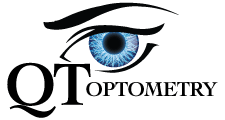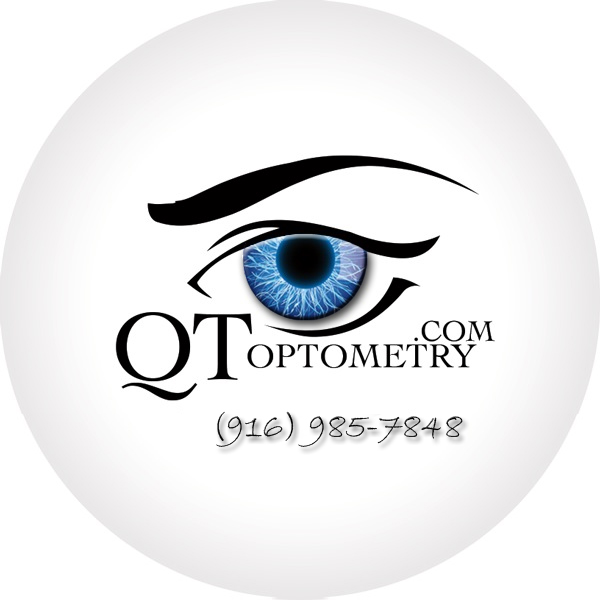Is Overnight Orthokeratology Therapy FDA Approved?
Yes it is! Corneal Refractive Therapy was the first therapeutic lens design that was approved by the FDA for overnight contact lens, for the temporary reduction of myopia. CRT received the final written approval on June 13, 2002. The issuance of this approval is the culmination of the most extensive clinical study to date to establish the safety and efficacy of contact lens corneal reshaping in overnight use.
What is the Difference Between Corneal Reshape/Refractive Therapy and CRT?
Corneal Reshape/Refractive Therapy, or Orthokeratology Therapy, is the process of using a therapeutic contact lens to reduce myopia (nearsightedness), hyperopia (farsightedness), and/or astigmatism by reshaping and molding the corneal surface, while you sleep. CRT is the product that can be utilized for this therapy.
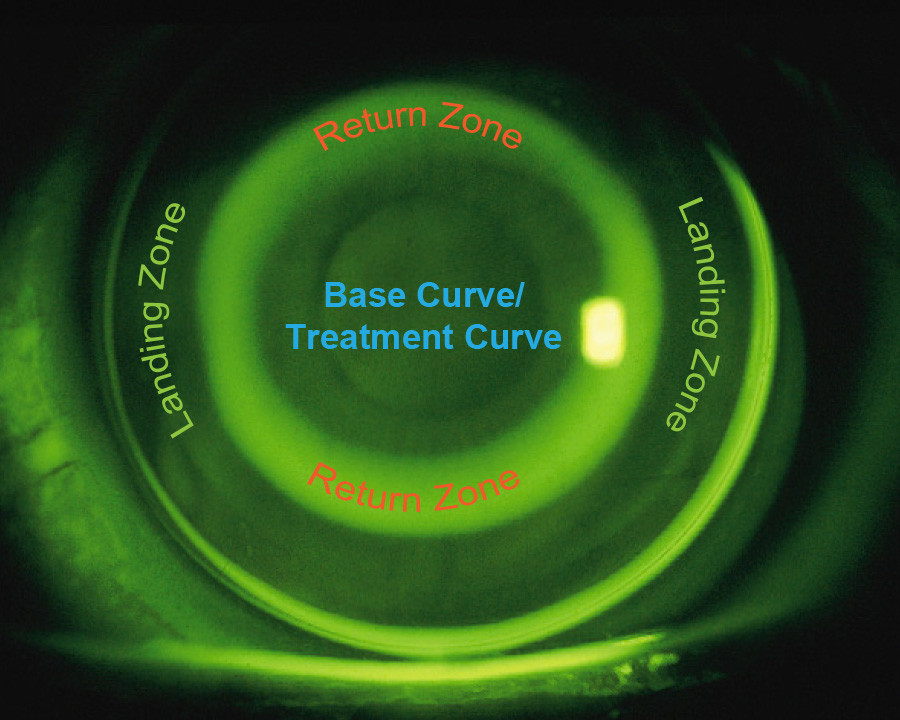
Are There Age Restrictions with OK Therapy?
Not at all! The FDA placed no age restrictions on candidates for Corneal Reshape/Refractive Therapy, or Orthokeratology Therapy, with CRT. Orthokeratology Therapy is being successfully performed on children eight years old and younger. It can be a great option for children, teens, and/or adults that are active in sports activities, and/or any other extracurricular activities. b. Those who are older and/or presbyopic (requiring reading glasses or bifocals) may still be a good candidate for Orthokeratology Therapy. Dr. Q may correct their distance vision with Orthokeratology, and wear near vision glasses for close work. Based on your needs and requirements, you may be fitted in Monovision (one eye corrected for near vision and one corrected for distance vision), or even multifocal Orthokeratology Therapy lenses. Visual requirements due to age or activities can only be made after a thorough Orthokeratology Therapy Evaluation.
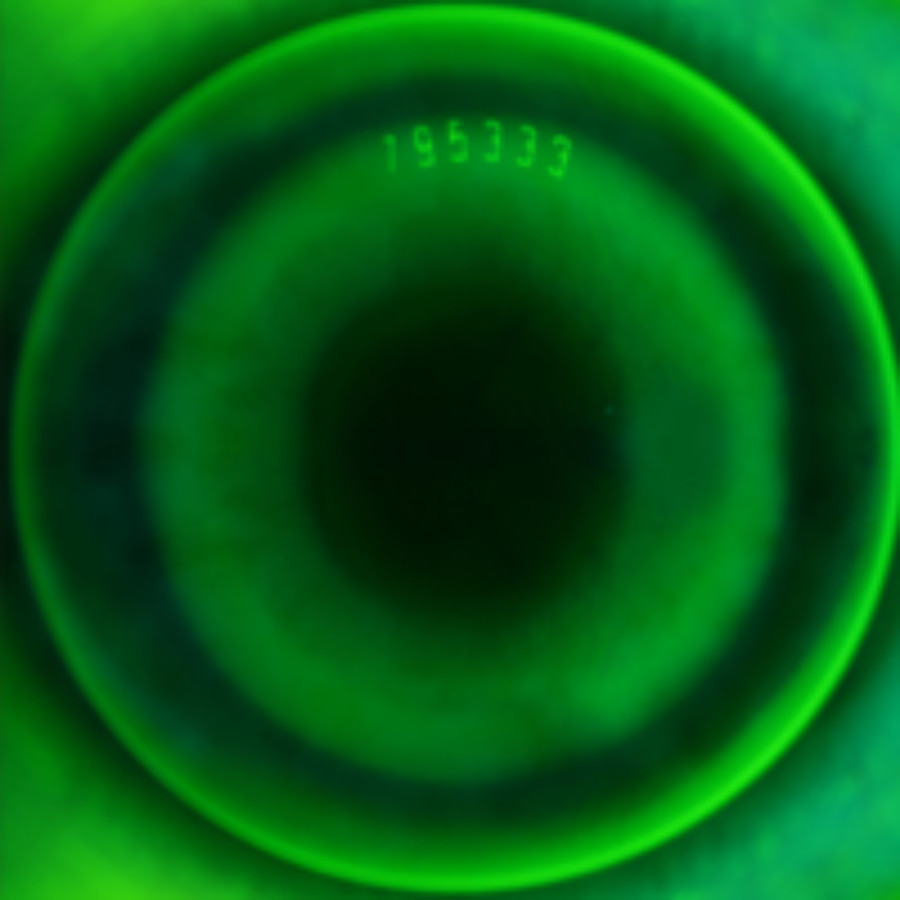
Is OK Therapy Permanent?
No, Orthokeratology Therapy is not permanent. Rather, it is temporary. If you decide to stop wearing the lenses regularly while you sleep, your vision will return to its original state in as little as 72 hours.
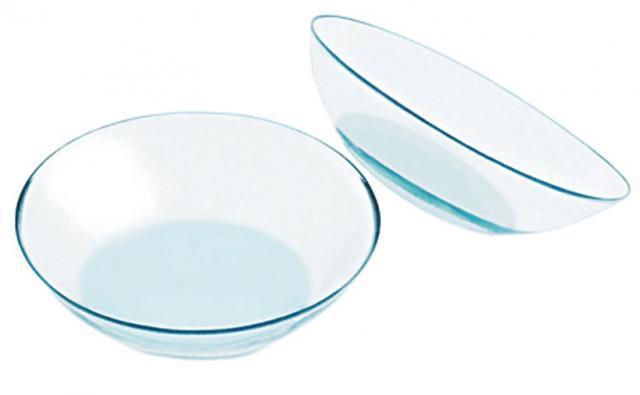
How Long Does it Take to Achieve Good Vision?
Most patients have rapid improvement in the first few days of treatment, and achieve their optimum vision in ten (10) to fourteen (14) days.
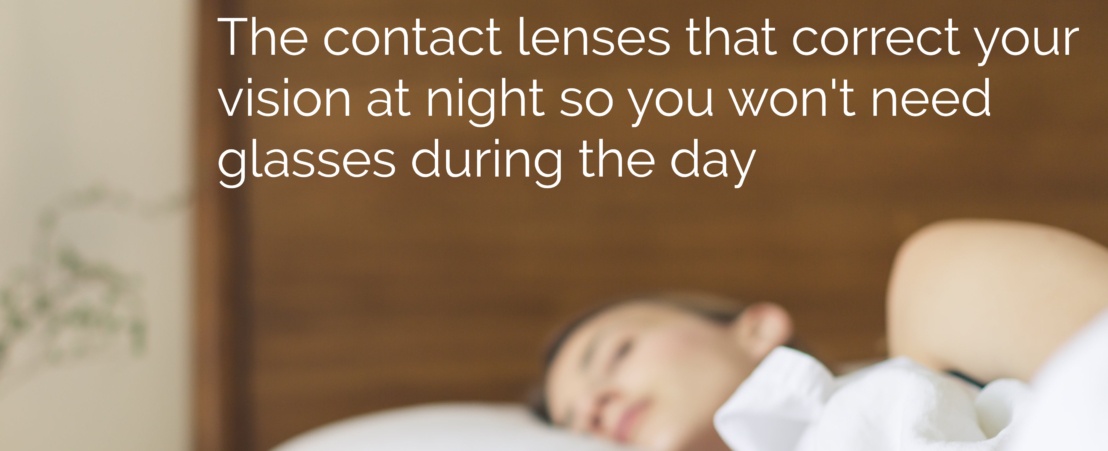
If I Discontinue OK Therapy, Will My Vision Return to “Normal?”
Yes, your vision will return to pre – therapy status, if you decide to discontinue with your Orthokeratology Therapy. There are no recorded permanent corneal changes post treatments. Generally, the more myopia (nearsightedness), hyperopia (farsightedness), and/or astigmatism being reduced, the longer it will take for the corneal curvature to return to normal. For instance, if your pretreated correction was -4.50 D, it would take a few days longer to return to normal than if the pretreated correction was -1.50 D.
What Are The Risks Involved with OK Therapy?
There is a small risk involved when any contact lenses are worn. It is NOT expected that the Orthokeratology lenses for Corneal Reshape/Refractive Therapy will provide a risk that is greater than other contact lenses that are worn during sleep.
Are OK Lenses Difficult to Apply/Remove?
Not at all. These Orthokeratology lenses are generally no more difficult to insert or remove than any other similar contact lens modalities. You may want to instill comfort or rewetting drops prior to insertion of the lenses and immediately upon waking. The lenses must move freely prior to removal. If you have difficulties removing the Orthokeratology lenses, there are lens removal aides available to assist this process.
What Should I Expect During the First 10 to 14 Days Treatment Process?
It’s important to understand that for a short time after you have begun treatment, but before sufficient therapy is realized, your old glasses or contacts lenses will no longer be the appropriate prescription. Because of this, you may have to re – insert your Orthokeratology lenses for part of the day or some use of temporary soft lenses in different prescriptions. Dr. Q will discuss the options with you for visual correction during that temporary period of time.
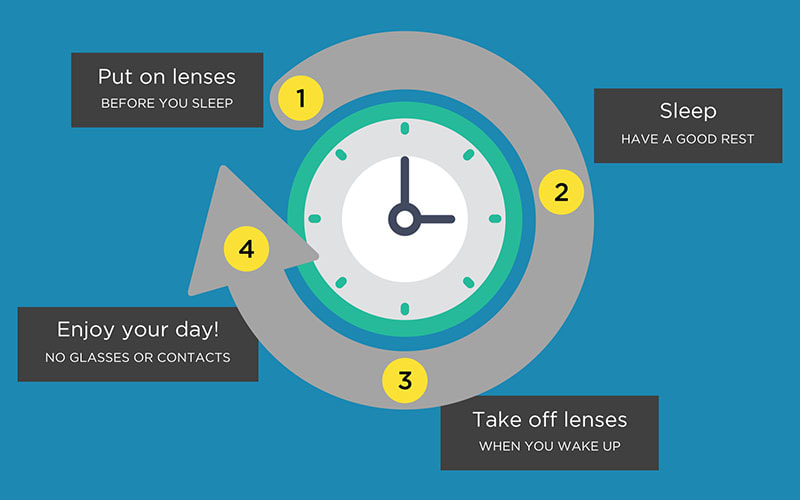
Can I See While Wearing My OrthoK Lenses?
Yes, absolutely yes! One of the great features of the Orthokeratology lenses is that if you get up in the middle of the night, you will be able to see perfectly. You will enjoy great vision with your Orthokeratology lenses 24 hours a day, on and/or off.

How Often Will I Have to Replace My OrthoK Lenses?
Generally speaking, the Orthokeratology lenses will have to be replaced every one to three years, depending on wear and tear. However, depending on other factors, such as protein buildup, or how well the lenses are taken care of, etc., the lenses may have to be replaced more or less frequently.
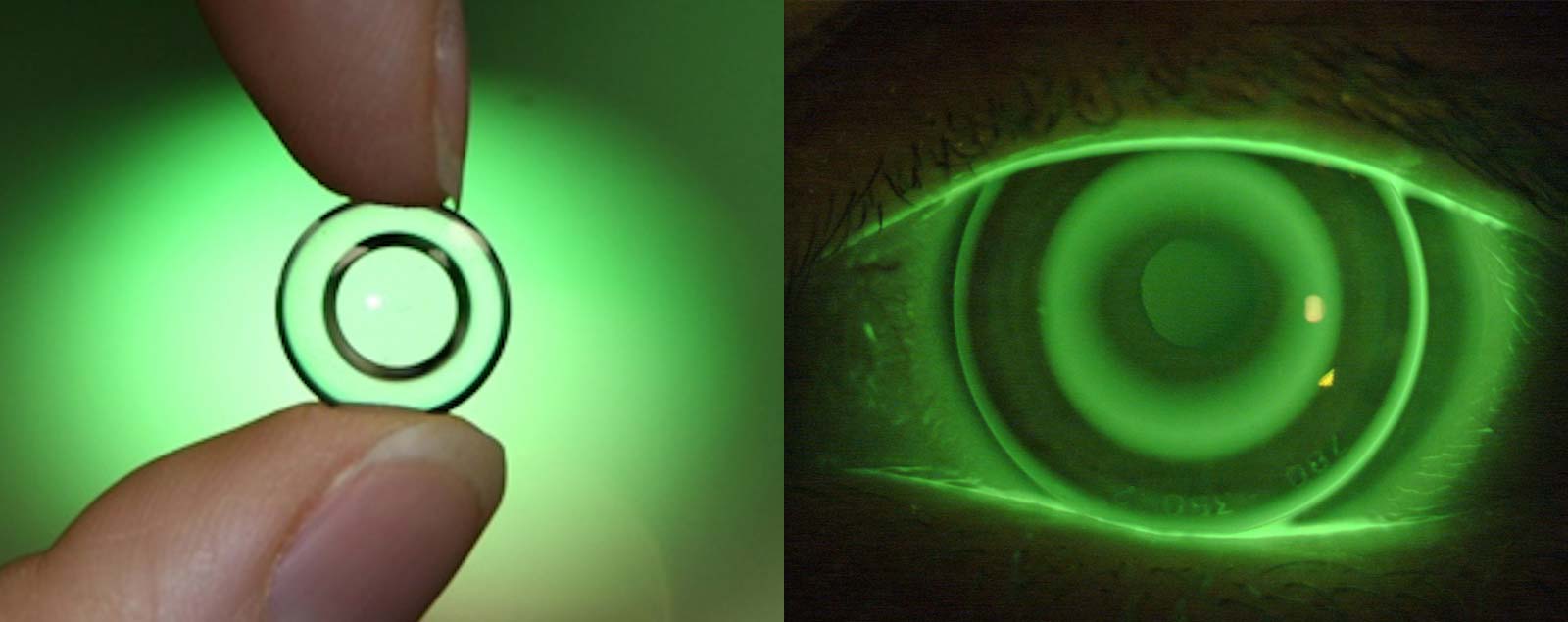
What Happens If I Lose or Damage a Lens?
Orthokeratology lenses are different than wearing regular contact lenses. If you discontinue wear for even one night, your vision may be impaired the next day. Previously worn glasses or contact lenses may not help, since those prescriptions are no longer adequate for your needs. Therefore, immediate replacement is necessary! Thus, Dr. Q highly recommends having a spare pair of Orthokeratology lenses specifically, so that your Therapy are not interrupted.
Is OrthoK Therapy Painful?
No, the therapy is not painful. Initially, you may have a slight awareness of the therapeutic lenses. You will not feel the lenses when you sleep and there is no sense of physical corneal change…just visual improvement when the lenses are removed.
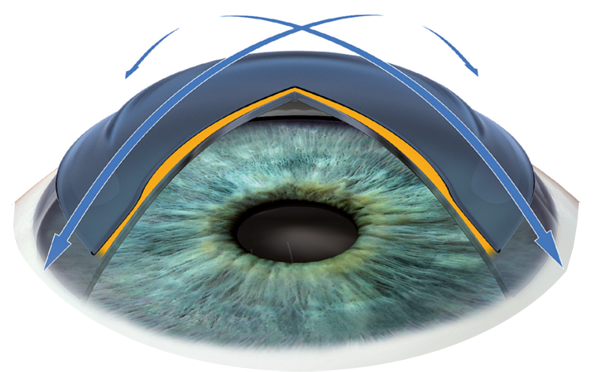
How Do I Care for My OrthoK Lenses?
Your lenses should be chemically disinfected after every use (not heat). Dr. Q will instruct you about which care system is best for you.

Will My Insurance Plan Cover OrthoK Therapy?
Because this is an elective procedure, and, to the best of our knowledge, is not usually covered by vision benefit programs. If regular contact lenses are covered under your vision care plan, Orthokeratology lenses may be partially covered. You should check with your vision benefits plan administrators.
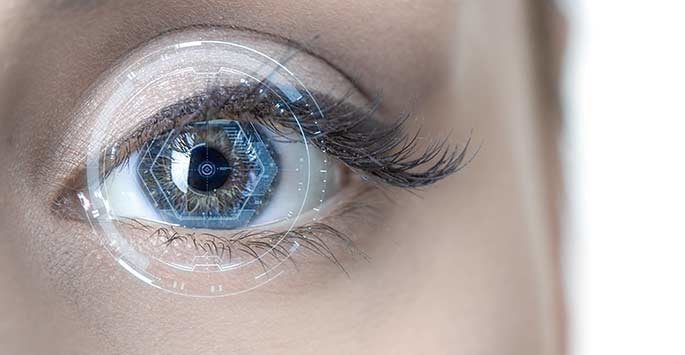
I Suffer From “Dry Eyes.” AM I a Candidate for OrthoK?
Many patients with slightly dry eyes do very well with Orthokeratology Therapy. Since you are wearing the lenses only while sleeping, the closed eye minimizes evaporative loss of tears and may give dry – eye patients suitable vision without compromising the ocular surface.
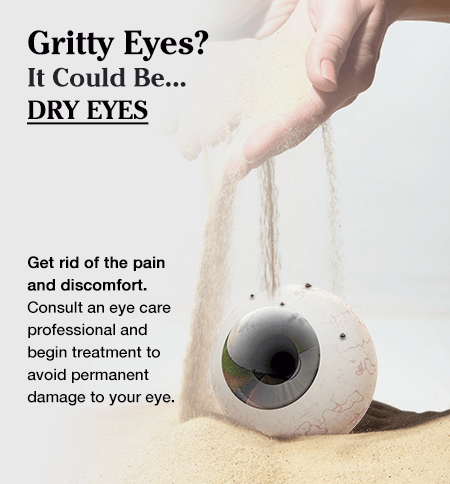
I Used to Wear Contact Lenses, But Have Stopped Due to Discomfort. Am I a Candidate?
Orthokeratology lenses are worn at night, while you are sleeping. This greatly reduces any discomfort normally experienced while wearing contact lenses during the day.
I Have Astigmatism. Am I a Candidate for OrthoK?
Orthokeratology Therapy is designed to correct up to -4.00 D of corneal astigmatism. You will be evaluated carefully to determine if Orthokeratology lenses are right for your visual requirements.
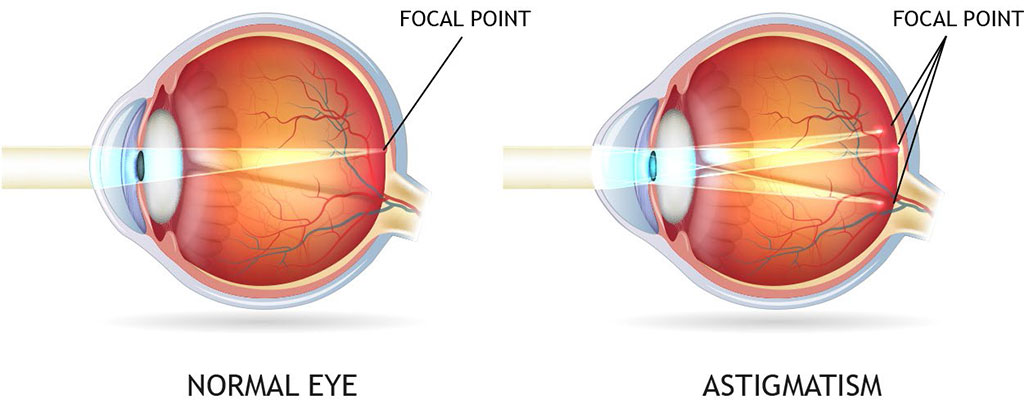
I Have More Questions...
Please Call/Text/Email for a FREE Overnight Orthokeratology Consult with Dr. Q!
If you have any other questions or inquiries, please contact us via:
- Email: info@QToptometry.com
- Phone: (916) 985-7848
- Text: (916) 985-7848
Thank you, sincerely, for considering QT Optometry!
I Have LOTS More Questions...
Please Call/Text/Email for a FREE Overnight Orthokeratology Consult with Dr. Q!
If you have any other questions or inquiries, please contact us via:
- Email: info@QToptometry.com
- Phone: (916) 985-7848
- Text: (916) 985-7848
Thank you, sincerely, for considering QT Optometry!
My Driver’s License Says I Need Corrective Lenses to Operate a Motor Vehicle. What Do I Do?
You will be supplied with document that states you are participating in a visual therapy program that eliminates the needs for corrective lenses while operating a motor vehicle. The document should have an expiration date for this treatment and you should have your driver’s license updated with a new vision screening through your local DMV office to reflect this change before the expiration date.
